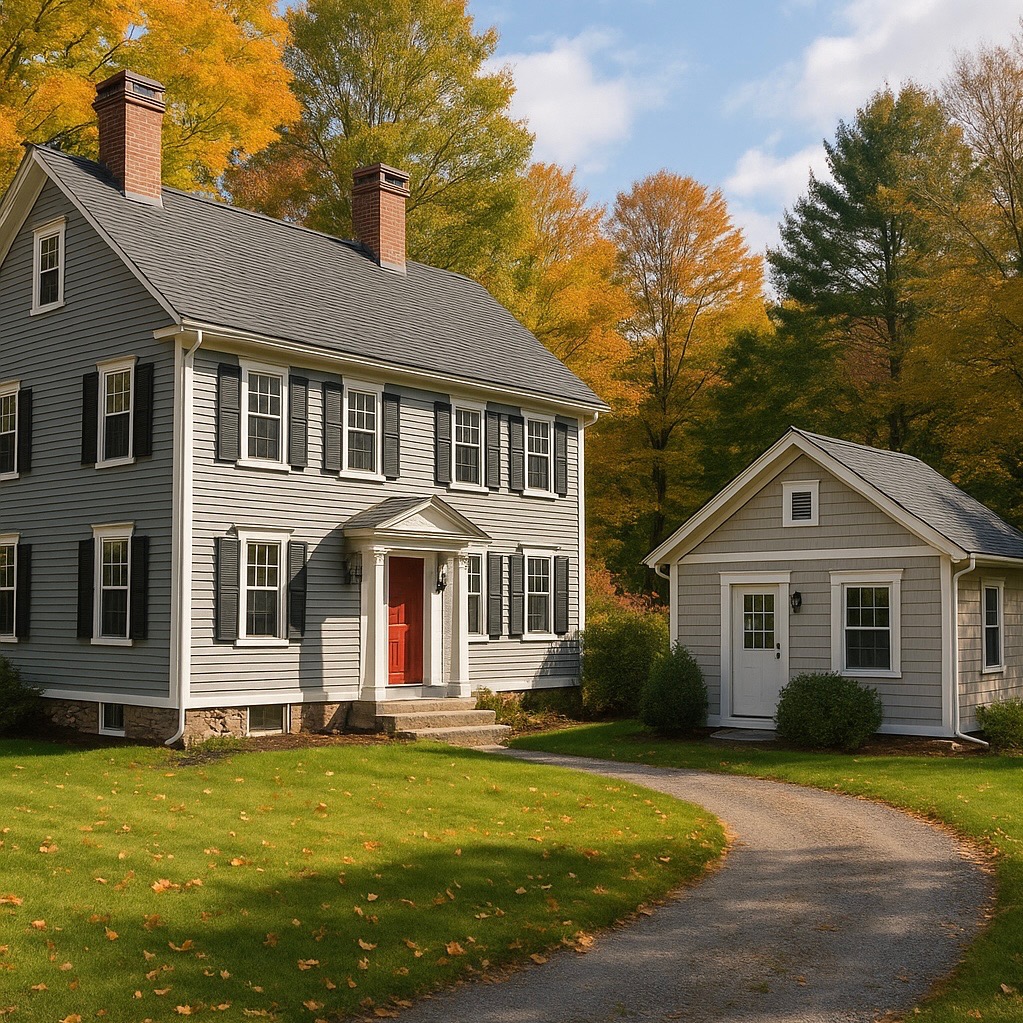
Big changes are coming to New Hampshire housing. If you’ve ever dreamed of building a little backyard cottage, an in-law apartment, or a rental unit to bring in some extra income, the rules just got a lot friendlier. In 2025, the state passed a law that expands what homeowners can do with Accessory Dwelling Units (ADUs), and it could open the door to new opportunities for families across the Granite State.
What Are ADUs?
ADUs, short for Accessory Dwelling Units, are small, secondary homes built on the same lot as an existing single-family house. Think of them as in-law apartments, garage conversions, or backyard cottages. They’ve become a popular tool nationwide for easing housing shortages while giving property owners flexibility.
The Old Rules
Until recently, New Hampshire towns only had to allow attached ADUs — units physically connected to the main house. That often meant basement apartments or additions with an interior connecting door. Detached ADUs, like a small standalone unit in the yard, weren’t guaranteed by law. Towns could block them or pile on restrictions, making them difficult to build.
What Changed in 2025
The new law, passed as part of a broader housing reform package, makes ADUs much more accessible:
- Detached ADUs are now allowed statewide – homeowners can build a small cottage or separate unit on their lot.
- Interior door requirements are gone – ADUs no longer need to be directly connected to the main house.
- Simpler, clearer standards – the law reduces some of the red tape towns used to impose.
This change is meant to encourage more housing options, ease the affordability crisis, and give families more freedom with their property.
Why It Matters for Homeowners
This law unlocks new possibilities:
- Rental income – homeowners can create a small unit to rent out, helping cover mortgage or tax bills.
- Family housing – space for an aging parent, adult child, or caregiver without leaving the property.
- Added value – ADUs can increase resale appeal in a tight housing market.
Of course, building an ADU still requires planning for design, utilities, permits, and financing. But now, you have more freedom to pursue the option.
Thinking About Building One?
If you’re considering an ADU, here are some steps to get started:
- Check with your town – ask about zoning updates, setbacks, and design requirements.
- Run the numbers – look at costs versus potential rental income or family needs.
- Explore financing – consider a home equity loan, line of credit, or savings.
- Hire experienced help – contractors and designers familiar with ADUs can save headaches.
- Plan long-term – think about who will live there now, and how the space could evolve over time.
The Bottom Line
For years, New Hampshire homeowners were limited to a narrow definition of ADUs. Now, with detached units allowed, you have more control over your property and more ways to adapt to today’s housing challenges.
If you’ve ever imagined a backyard cottage, a rental space, or a comfortable unit for family, this could be your chance to bring that vision to life.
If you have any questions feel free to reach out. As always, I love being your resource for all things home and real estate.
Hi, there!
I'm Danielle and I love helping people in NH, easily and affordably 'right'size' from home that no longer meet their needs to homes that better fit their current needs and lifestyles.
Let's Meet
Contact
603-988-3140 (call or text)
Buy/Sell
My Listings
Downsize
Homeowners
schedule A consultation